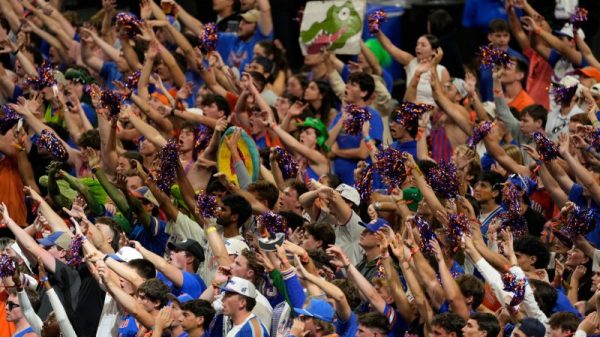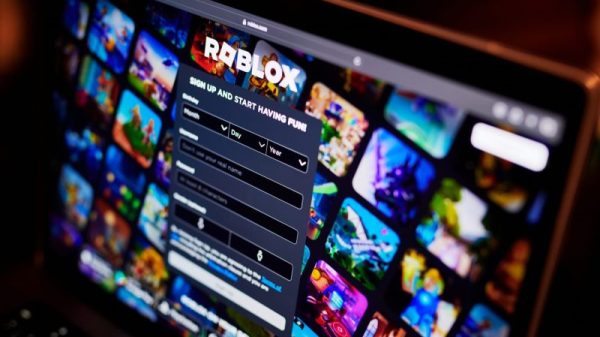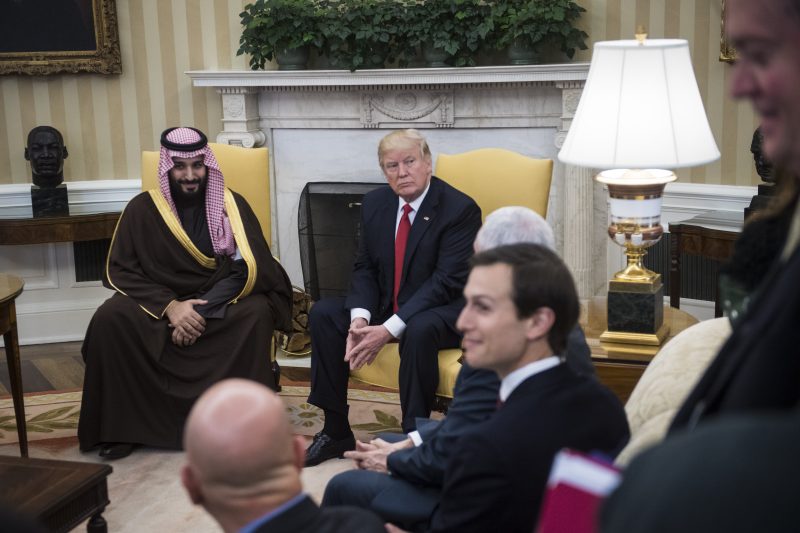Shortly after being indicted on charges of paying hush money to an adult-film actress, Donald Trump sat for a deposition in his separate financial fraud trial and bragged about being able to sell his properties at an inflated rate to Saudi Arabian interests.
A New York judge noted the boasts in a major ruling on Tuesday that found Trump and his company had committed fraud for years. The judge further suggested that such prices might have had more to do with buying influence than buying properties — a relevant point given Trump’s controversial post-presidency business arrangements with the Saudis.
In his ruling, New York Supreme Court Justice Arthur Engoron pointed to what he viewed as a particularly strained argument from Trump: that the property values Trump inflated to increase his perceived net worth could be correct because someone might pay them.
And Trump repeatedly pointed to a particular someone: the Saudis.
“He also seems to imply that the numbers cannot be inflated because he could find a ‘buyer from Saudi Arabia’ to pay any price he suggests,” Engoron wrote.
Then, in a conspicuously inserted footnote, Engoron added: “This statement may suggest influence buying more than savvy investing.”
But it wasn’t the only time Trump talked recently about being able to take Saudi money in controversial ways. Trump keeps talking about this, even after controversy erupted over his son-in-law Jared Kushner’s acceptance of $2 billion in financing from the Saudi Public Investment Fund shortly after Trump left office, even after Trump went into business with the Saudis, even after the GOP criticized the Bidens for purportedly being compromised by foreign money, and even after Trump criticized politicians for taking foreign money in the past, including from Saudi Arabia.
Engoron was referring to not one but two segments of Trump’s April deposition.
In one, Trump refers to the $291 million valuation of his Seven Springs mansion in Westchester County, N.Y., which he later reduced.
“I just felt when I saw that, I thought it was high,” Trump said. “But I could see it — as a whole, I could see it if this were sold to one buyer from Saudi Arabia.”
Trump drove the point home at another juncture, while talking about selling his Turnberry Hotel and Resort in Scotland.
“But I believe I could sell that to LIV Golf for a fortune, Saudi Arabia,” Trump said. “I believe I could sell that to a lot of people for numbers that would be astronomical because it is like — very much like owning a great painting.”
When asked whether he had received any such offers, Trump said he had not asked for any.
But he added: “People have said to me, if you ever want to sell Turnberry, let us know. I would be — I would be able to sell Turnberry quickly for a tremendous amount of money, far beyond what you would say it’s worth by the money it makes, far beyond.”
While few noted the exchanges when the deposition transcript was released a month ago, Trump just a week later made a similar point at a rally. He suggested he had turned down offers involving Saudi Arabia while serving as president.
“I’m working for you. I’m not working for me; that I can tell you,” Trump said. “I could have made so much. I could have. ‘Sir, we’d love to do a deal in Saudi Arabia.’ ‘Sir, we’d love to do a deal here and there. We’d love to do a deal.’ ‘I really can’t do that. I’m president.’ ”
To be clear, Trump in his deposition said the inflated property values he claimed might in fact be legitimate because the Saudis could throw money at him. While he wasn’t talking about actual deals that were cut or Saudi money that he took, he was effectively using this idea to try to get himself out of trouble. Just as Trump’s inflated property values weren’t accurate but carried value for him in business transactions, his attempt at creating a perception of potential Saudi largesse carried potential value in absolving him of liability.
And Trump for some reason kept citing the Saudis, specifically. The implication would seem to be that the Saudis might pay his prices in a way others might not.
“It suggests that there are people or institutions that want to provide him with a substantial monetary benefit that isn’t justified in a business sense — beyond the ordinary market value,” governmental ethics expert Kathleen Clark of Washington University in St. Louis recently told Mother Jones. “And then the natural question is, are they doing that because they want to curry favor in case he becomes president? Are they doing it because of his political power?”
Trump’s history here is applicable. Before becoming president, he spent years criticizing the U.S. relationship with the Saudis as being too cozy. He even criticized the Clinton Foundation in 2016 for taking Saudi money, because the Saudis “want women as slaves and to kill gays.”
But as president he soon pulled a U-turn, particularly after the Saudis assassinated Washington Post contributing columnist Jamal Khashoggi. He repeatedly seemed to acknowledge that his posture was transactional — that the amount of money at stake in potential deals between the countries was too great to judge the Saudis too harshly.
And even back when he was criticizing the U.S.-Saudi relationship, he was pointing to his transactional view of the Saudis.
“Saudi Arabia, I get along great with all of them. They buy apartments from me. They spend $40 million, $50 million,” he said in 2015. “Am I supposed to dislike them? I like them very much.”
Since leaving office, not only has Kushner accepted $2 billion in funding from the Saudis, but Trump himself has gone into business with the Saudi-backed LIV golf tour. Trump also cut a deal with a Saudi real estate company to build a Trump hotel at a $4 billion golf resort in Oman.
Also of interest is the recent history of the Saudi Public Investment Fund. It has sought influence in the sports world by paying inflated prices for big-name golfers to join its LIV tour and soccer stars like Cristiano Ronaldo to come play in its lower-tier league. Human rights groups have accused the Saudis of sportswashing, the practice of luring high-profile athletic competition to rehabilitate an image.
It’s against this backdrop that Trump is citing the Saudis as potentially validating the inflated property values he claimed. And he did so even as Republicans have launched an impeachment inquiry involving supposed foreign influence and Joe and Hunter Biden.
The argument didn’t land with Engoron. But the fact that the judge briefly sought to emphasize the idea that this would involve “influence buying” shouldn’t escape anyone’s notice, particularly given Trump’s relationship of convenience with the Saudis.



























